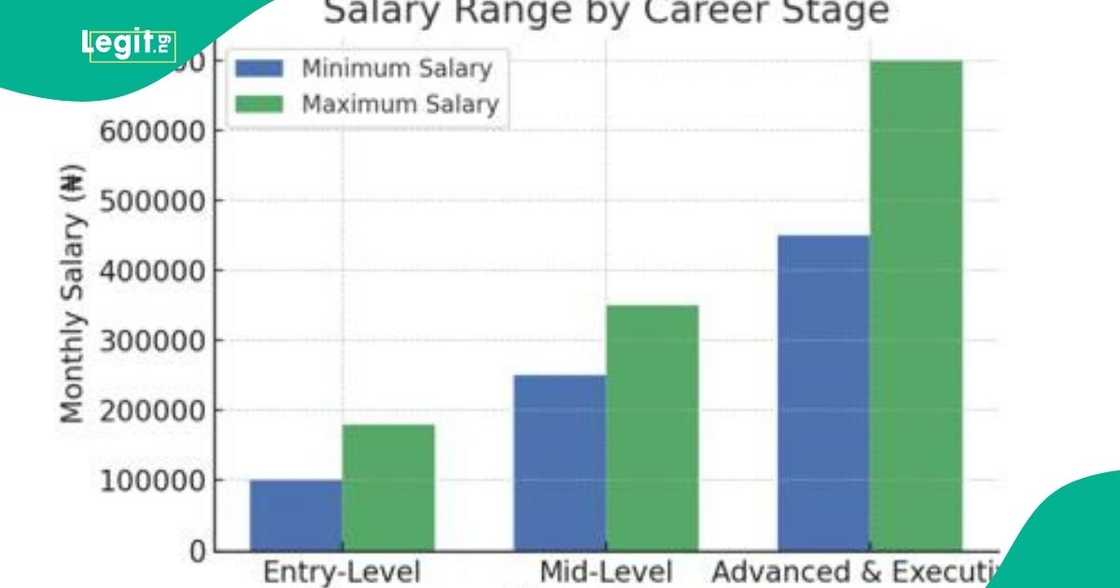Gatekeepers of Public Health: Why Nigeria’s Food Safety & Quality Leaders Deserve Competitive Compensation
In an era of foodborne disease outbreaks, increasing consumer awareness, and expanding global trade, food safety and quality are no longer secondary concerns. At the core of Nigeria’s growing food industry lies a class of professionals too often overlooked—Food Scientists and Food Safety & Quality Control & Assurance Managers.
Whether in quick-service restaurants, manufacturing plants, or regulatory agencies, these professionals work tirelessly to keep our food safe, nutritious, and compliant. Today, those at the top of their field command monthly salaries ranging from ₦450,000 to ₦700,000 in Lagos—and this is no luxury. It’s a strategic imperative.

Source: Original
More Than a Role – A National Safety Net
Food Scientists and Food Safety & Quality Control & Assurance Managers are public health sentinels. From preventing product recalls and disease outbreaks to maintaining export standards, their work impacts millions. Yet, despite being essential to consumer trust and operational continuity, their compensation lags behind other critical functions.
Here’s why their value deserves a rethink:
• Risk Prevention: They enforce systems like HACCP, GHP, and ISO 22000, preventing contamination and disease.
• Brand Integrity: They ensure quality and consistency in every bite, reducing customer complaints and reputational damage.
• Compliance Guardians: They help businesses pass audits and avoid regulatory penalties.
• Innovation Enablers: Through R&D, they drive shelf-life improvement, cost reduction, and product innovation.
The Talent Gap and Certification Premium
While demand for food safety professionals has surged, supply remains tight. Only a few possess the mix of scientific knowledge, regulatory expertise, and leadership required. Professionals with certifications like HACCP Level 3, ISO 22000 Lead Auditor, or PCQI command premium pay.
A Data-Driven Ascent – The Salary Ladder
Career Stage Years of Experience Monthly Salary (₦) Key Responsibilities
Entry-Level 0–3 Years 100,000 – 180,000 QC inspection, lab analysis, sanitation monitoring
Mid-Level 4–7 Years 250,000 – 350,000 HACCP application, process checks, complaint analysis
Advanced & Executive 8+ Years 450,000 – 700,000 QA system leadership, audit readiness, training, regulatory strategy, global standards, team leadership
The chart below illustrates the salary progression across career stages:
Figure 1: Food Quality Assurance Manager Salaries
Data Methodology
The salary ranges and role descriptions presented in this article are based on a synthesis of industry salary surveys, recruitment agency listings, and interviews with human resource managers and senior food safety professionals in Lagos between January and June 2025. In total, 19,899 salaries were sampled across multiple sectors, including private sector manufacturing companies, quick-service restaurant chains, and relevant regulatory bodies. To ensure data credibility, salary figures were drawn from multiple independent sources and cross-referenced for consistency. Outliers were retained to reflect the full spectrum of market realities, but were clearly flagged during analysis to prevent skewed interpretation. Only roles with responsibilities directly aligned to food science, safety, and quality control functions were considered. Respondent anonymity was preserved to encourage full and accurate disclosure, and all monetary values were standardized to gross monthly pay in Nigerian Naira. Lagos was selected as the benchmark location due to its concentration of major food industry employers, higher cost of living, and more competitive compensation structures compared to other Nigerian cities.
Why Competitive Pay Matters
• A contaminated product can result in millions in losses, lawsuits, or factory closures.
• Delayed export certification due to non-compliance stalls revenue flow.
• Poor shelf-life management leads to wastage and customer distrust.
Paying a top-tier Food Scientist or Food Safety & Quality Control & Assurance Manager at competitive rates is not about indulgence—it is about protecting lives, enabling market expansion, and building institutional trust.
A National Call for Talent Development
Just like in supply chain management, the gap between junior and senior food science roles sends a strong signal:
• To individuals: Invest in certifications, technical skills, and audit exposure.
• To companies: Develop internal training pipelines and reward value creation.
• To regulators: Champion professional frameworks and standardize recognition through councils or guilds.
Conclusion – Investing in the Invisible Shields
In the shadows of compliance, quality, and trust, Nigeria’s food scientists and food safety, quality control, and assurance managers hold the line against contamination, inefficiency, and public health crises.
Offering competitive, well-deserved compensation for senior professionals in these roles is not a luxury—it’s long overdue. These individuals are far more than lab workers; they are guardians of your brand, the final defense against disaster, and the quiet innovators driving safety, quality, and trust.
The real question isn’t whether ₦700,000 is too much — it’s whether it’s enough to keep the guardians of your customers’ safety under your roof. Now is the time for business leaders and policymakers to revalue these roles, not as optional costs, but as national public health investments.
Source: Legit.ng






